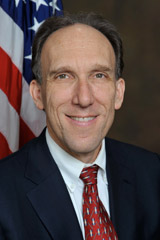A Quote by Jane Jacobs
Innovating economies expand and develop. Economies that do not add new kinds of goods and services, but continue only to repeat old work, do not expand much nor do they, by definition, develop.
Related Quotes
Economies and societies invariably remake themselves in the wake of a crisis. It's a necessary component of rebound and recovery. Outmoded industries and tired consumption habits make way for new goods and services, new careers and forms of employment, and population realigns itself in the landscape. All these developments are connected to lifestyle changes.
One of the most striking trends, since at least the 1960's, has been for employment in services to grow far more rapidly than employment in manufacturing. It is this trend that has led to the view that developed economies have become de-industrialized and that they are now effectively service economies.
The necessity for struggle is one of the clever devices through which nature forces individuals to expand, develop, progress, and become strong through resistance. . .We are forced to recognize that this great universal necessity for struggle must have a definite and useful purpose. That purpose is to force the individual to sharpen his wits, arouse his enthusiasm, build up his spirit of faith, gain definiteness of purpose, develop his power of will, and inspire his faculty of imagination to give him new uses for old ideas and concepts. . .
The de industrialization of the US. economy based on the migration of corporations into third world areas where labor is very cheap and thus more profitable for these companies creates on the one hand conditions in those countries that encourage people to emigrate to the US. in search of a better life. On the other hand, it creates conditions here that send more black people into the alternative economies, the drug economies, women into economies in sexual services, and sends them into the prison industrial complex.
Growing economies are critical; we will never be able to end poverty unless economies are growing. We also need to find ways of growing economies so that the growth creates good jobs, especially for young people, especially for women, especially for the poorest who have been excluded from the economic system.






































